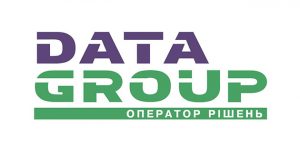
Projects of modernization to the European standard of the track from the border to Lviv and Kovel are described in the National Transport Strategy and require more than $ 75 million investment, said former Deputy Minister of Infrastructure of Ukraine for European Integration Viktor Dovgan to Interfax-Ukraine.
As reported, Prime Minister Denis Shmygal at a government meeting on Tuesday said that Ukraine will begin to gradually move to the European track to connect the Ukrainian railway with the EU, first connecting large hubs and large cities, and then gradually expanding across the country .
“Investments in such a large-scale project are unlikely, because 1 km of the European road – 1 million euros plus rolling stock. It is necessary to make short connections Lviv, Mukachevo, Chernivtsi and transfer. It is important to take an action plan of the National Transport Strategy. it is unrealistic to make a European track to Kyiv or Odessa at this stage, “Dovgan commented.
It will be recalled that in the Investment Atlas published by the Cabinet of Ministers at the end of 2020, two potential sections with the European standard of 1435 mm gauge were presented: Sknilov-Mostiska and Kovel-Yagodin-State Border.
The estimated cost of the Sknilov-Mostiska modernization project is $ 20.8 million, Kovel – Yagodin – State Border – $ 54.2 million.
In February 2022, Lviv OVA announced that within the framework of the presidential program “Big Construction” this year work will begin on the restoration of the 8-km Goskolitsa-Rava-Russkaya Eurorail, which they intend to implement within two years.
BORDER, EUROPEAN RAILWAY TRACK, INVESTMENT, LVIV, MODERNIZATION, КОВЕЛЬ

The World Bank may provide the Ministry of Infrastructure of Ukraine with financing in the amount of $250 million for the modernization of the railway.
According to a report on the bank’s website, the project is intended to increase the efficiency and financial stability of JSC Ukrzaliznytsia.
Financing of the project may begin in FY2022, which ends on June 30 at the World Bank.
In addition, according to a posting on the bank’s website, it may also provide Ukraine with $400 million in financing for the Road Safety Facility.
The purpose of this project, as noted in the report, is to support the implementation of the Vision Zero concept in Ukraine (an international program to improve road safety and reduce mortality in road traffic accidents).
Financing of the project may begin in FY2023, which starts at the World Bank on July 1, 2022.

JSC Ukrzaliznytsia in the state electronic trading system ProZorro announced a tender for the purchase of services for the modernization of the vertical of passenger transportation with an expected cost of UAH 304.521 million.
According to information in ProZorro, within the framework of the tender, Ukrzaliznytsia plans to acquire consulting services for the modernization of the passenger transportation vertical, which may include:
– analysis of the historical market situation;
– modeling and planning passenger traffic using specialized software;
– route optimization and formation of a new schedule;
– financial and business planning of the vertical of passenger transportation, separately for segments of long-distance and suburban traffic;
– development and implementation of a public transport system (PSO);
– formation of a capital investment program.
In addition, the described services include improvement of the collection of fares in electric trains; introduction of a modern pricing system; increase in income from the sale of additional services; formation of technical requirements for the acquisition of new modern passenger rolling stock; as well as overhaul and modernization of the existing rolling stock, etc.
Ukrzaliznytsia also wants to get advice on changes in the organizational structure; formation of the structure of depots; changes in the structure of locomotive crews, etc.
The deadline for submitting bids is February 1, 2022, and the auction is scheduled for March 9.
As reported, Ukrzaliznytsia planned to receive a draft report from Deutsche Bahn DB Engineering & Consulting by the end of 2021 with recommendations on the modernization of passenger traffic and a model for organizing financing of socially important rail transport.
After the implementation of the first phase of cooperation, Ukrzaliznytsia considered the possibility of moving to the second phase – attracting Deutsche Bahn Engineering & Consulting managers to the management of the passenger vertical.
Ukrzaliznytsia and Deutsche Bahn Engineering & Consulting on August 24, 2021 signed an agreement on consulting in the field of passenger transportation.

The European Investment Bank (EIB) has provided EUR 49 million investments to carry out a comprehensive energy-efficient modernisation of the majority of their buildings of six Ukrainian universities under the Ukraine Higher Education project and they will also receive the E5P grant in the amount of EUR 10 million.
“Six Ukrainian universities will carry out a comprehensive energy-efficient modernisation of the majority of their buildings with the support of EUR 49 million investments of the European Investment Bank (EIB) and the E5P grant in the amount of EUR 10 million,” the EIB and the Ministry of Education of Ukraine said in a press release on Tuesday.
Chernihiv Polytechnic National University, Lviv Polytechnic National University, National Technical University Kharkiv Polytechnic Institute, National University Yuri Kondratiuk Poltava Polytechnic, Sumy State University and Vinnytsia National Technical University actively participate in the Phase I of the Ukraine Higher Education Project to improve their teaching and research facilities and dormitories.
“They will soon be joined by eight more higher education establishments, which were selected on a competitive basis to take part in the Phase II of the Project,” the bank and the ministry said in the press release.
The implementation of thermal modernisation works at the Phase I universities is expected to start in the fall of 2022.
The EIB is investing EUR 120 million in a comprehensive thermal refurbishment of six Ukrainian universities in the framework of the Ukraine Higher Education Project, which is an integral part of the joint EIB and EU support provided to Ukraine in the field of energy efficiency. The project is also co-financed by the Nordic Environment Finance Corporation (Nefco) in the amount of EUR 30 million.
EIB, ENERGY-EFFICIENT, EUROPEAN INVESTMENT BANK, LOAN, MODERNIZATION, UNIVERSITY

JTI Ukraine tobacco company plans to invest $45 million in the expansion and renovation of the production facilities of its factory in Kremenchuk in 2021-2022, General Manager of Japan Tobacco International (JTI) Ukraine Paul Holloway has said in an exclusive interview with Interfax-Ukraine.
“This is the modernization of the entire production complex, and not an investment in a separate production line, as it was the case two years ago. The plans for this year are the expansion of the factory, the construction of a new warehouse, the modernization of the tobacco shop, new production lines, the modernization of buildings, structures, infrastructure and much more,” he said.
According to Holloway, the company intends to increase the export of tobacco products, and make it more efficient. An important factor that influenced the company’s plans was its obtaining the status of an Authorized Economic Operator (AEO), which will reduce customs formalities for the import of raw materials and the export of finished products.
The general manager of the company said that JTI, which received this status for the first time in Ukraine, will have a number of advantages when going through customs clearance in Ukraine, including the opportunity to use a special traffic lane for commercial vehicles.
Holloway said that in 2020, the company paid six times more dividends than in the entire history of JTI’s work in Ukraine, and the investments provided for the development of the factory will not affect the further payment of dividends to shareholders. According to him, the factory in Kremenchuk is an independent center of profit, and it will provide money that it earned earlier for investments.
JTI paid out more than UAH 300 million in dividends to shareholders for 2018-2019 and plans to pay about the same amount for 2020.

The national operator Datagroup is investing $20 million in a project to modernize the all-Ukrainian backbone network in partnership with the world leader in production of network equipment Cisco (the United States), the company’s press service said.
Datagroup notes that investments in the project will amount to $20 million, and the project itself will help the company bring the quality of services to a higher level.
At the same time, it is specified that the company carried out thorough preparation for a tender and chose the best world equipment manufacturers to participate in it. Based on the results of the tender, Cisco became the project vendor.
“In 2020, the company’s network traffic grew by 35%. We made a decision on a large-scale network modernization, which will allow us to implement our business strategy. It will also lay the foundation for business growth for 10 years: it will allow us to introduce various innovative services and attract new clients in corporate, public and private sectors,” CEO of Datagroup Mykhailo Shelemba said.
The press release says the total length of the Datagroup high-speed data transmission network is more than 22,000 km: these are long-distance DWDM and MPLS networks, and urban MPLS backbone networks in the major cities of the provider’s presence. The modernization will apply to all levels of the network and will significantly increase its throughput.
Datagroup was founded in 2000. It is one of the largest B2B operators in Ukraine, provides services in more than 90 settlements of the country.
The company provides Internet connection, telephony, television and video surveillance services, as well as a cloud service from Microsoft and a range of cybersecurity services – DataProtect.
Data Group in 2019 increased its net profit by 6.97 times compared to 2018, to UAH 141.764 million.